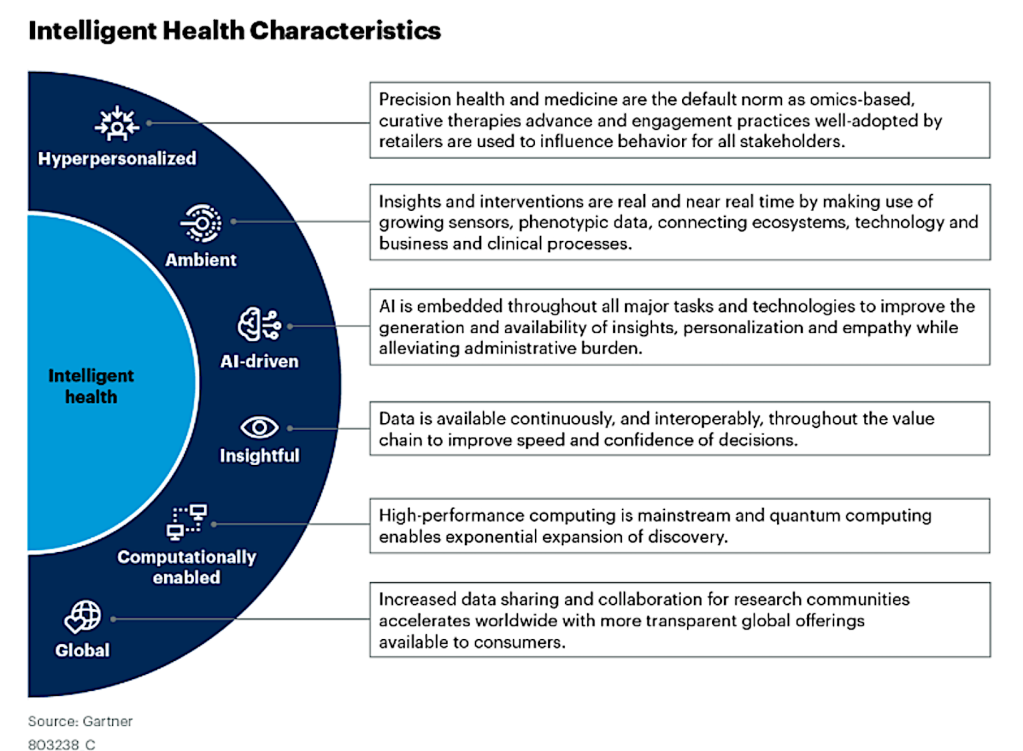

Gartner Inc.
“Given the complexity of healthcare patient journeys, there is really no one-size-fits-all, and this is where technology can help better support personalization [and] precision using data and insights,” Adams said. “Intelligent health is interoperable by default, relying on continuous data to deliver experience through the unification of digital and in-person care delivery that is precise, equitable and ethical.”
Every patient needs to be approached differently to drive behavioral changes, according to Adams. For example, if a patient needs to lose weight or eat healthier to lower their cholesterol and/or blood pressure levels, AI-based technology can assess their history and make recommendations.
“Patients continue to demand more from their experiences, and they have more choice now than ever. Each patient type needs to be approached differently to drive behavioral change. This [AI tool] simplifies it,” Adams said.

